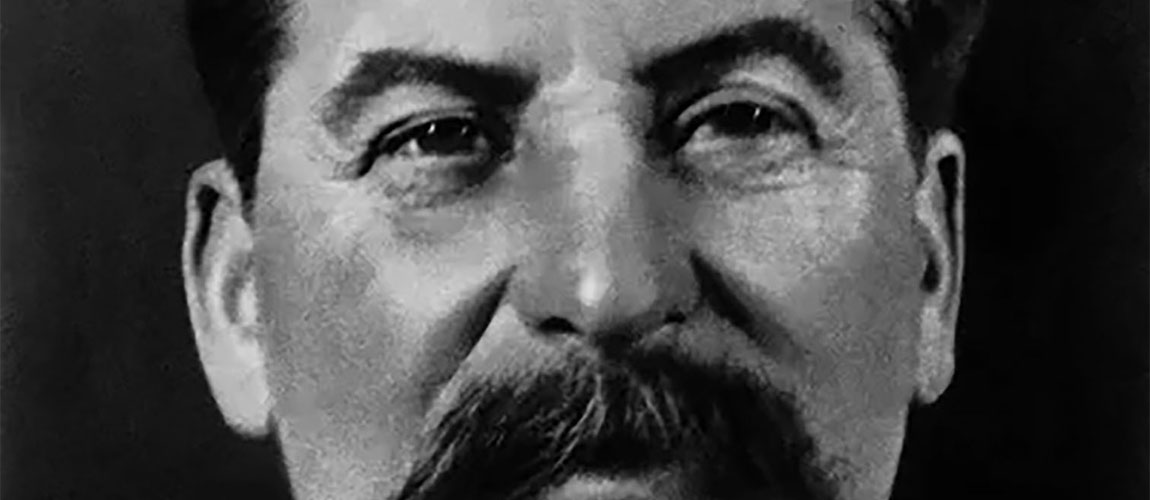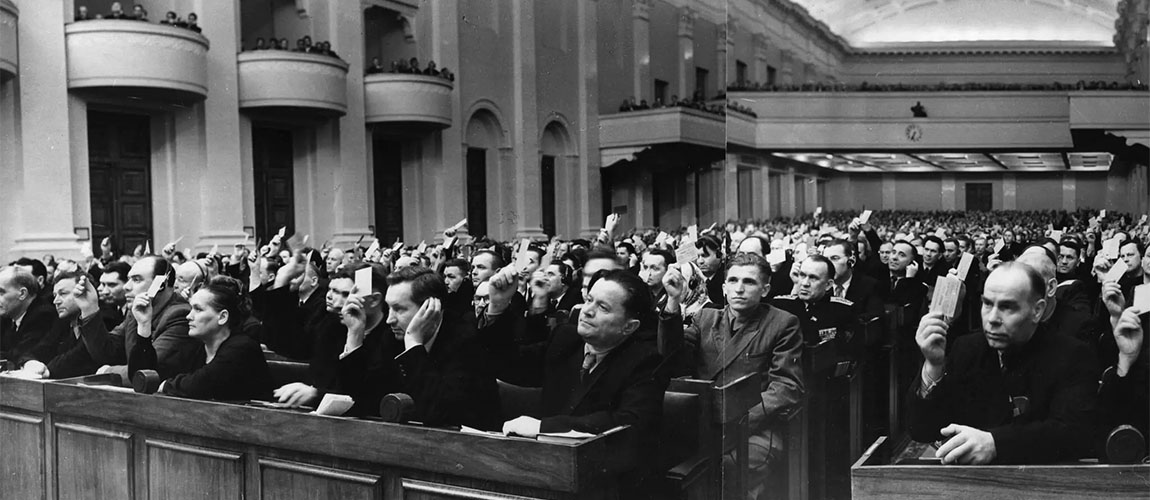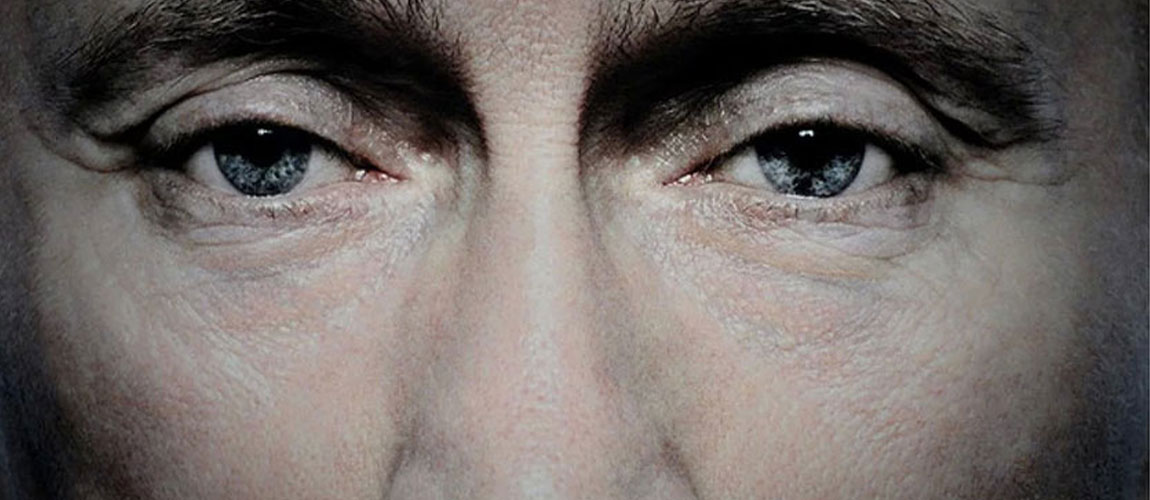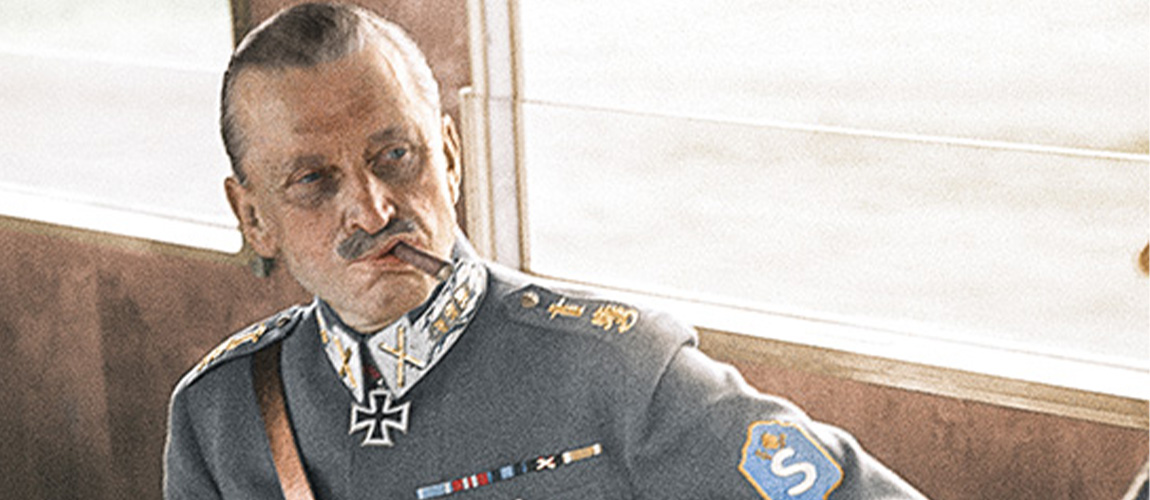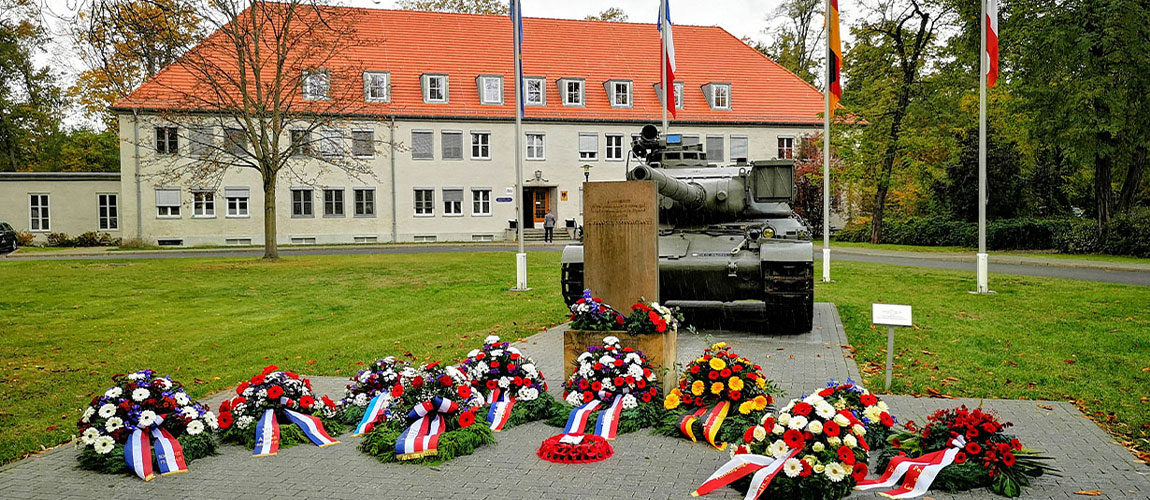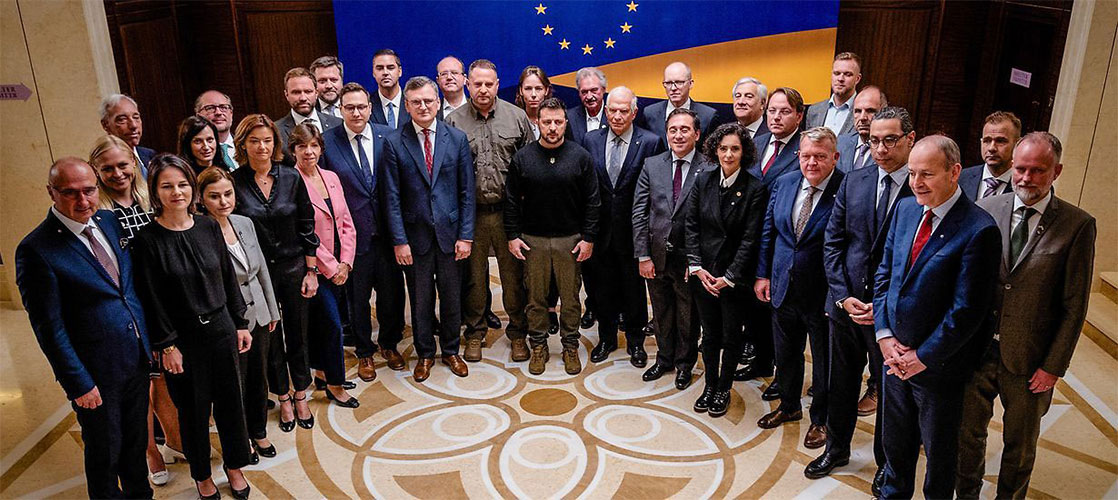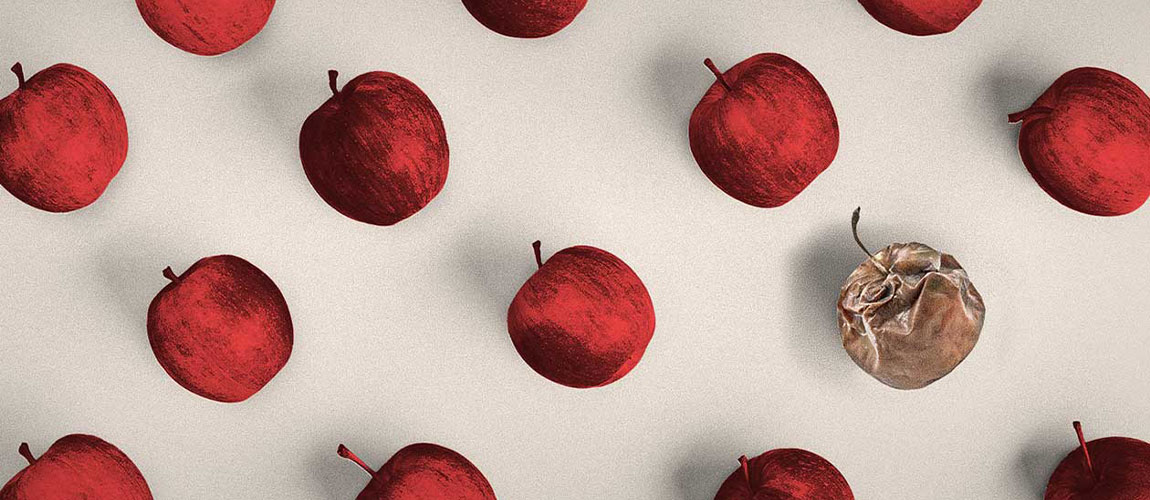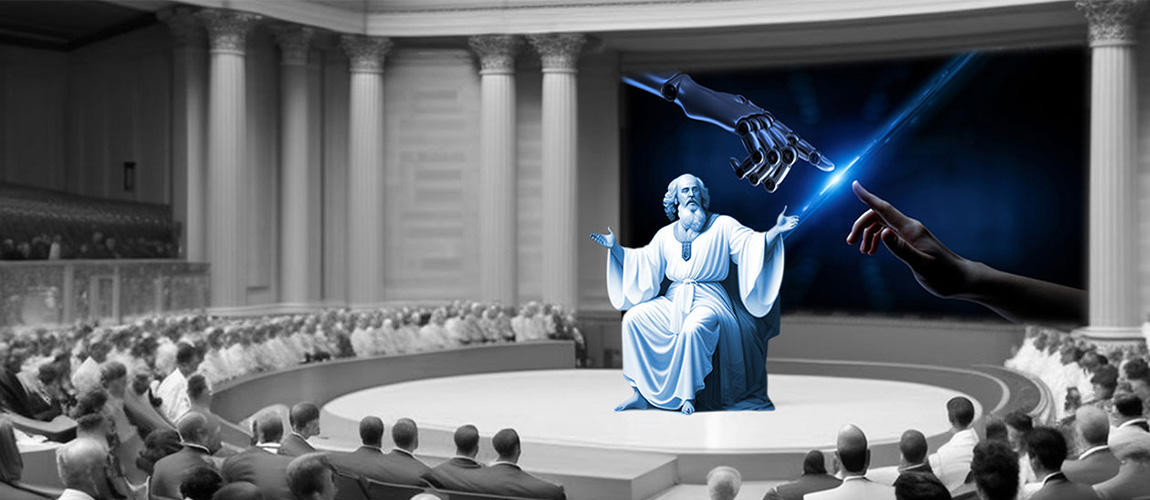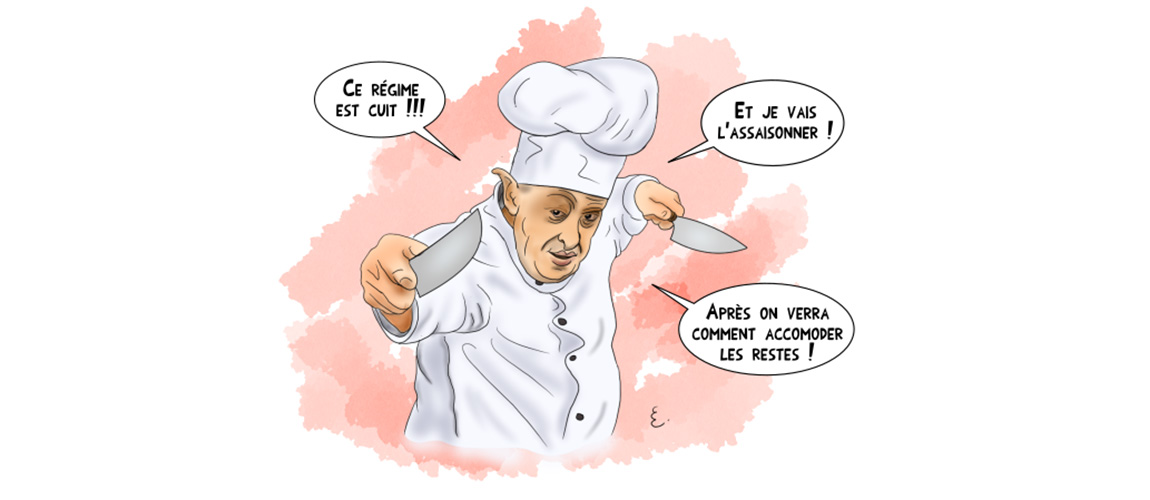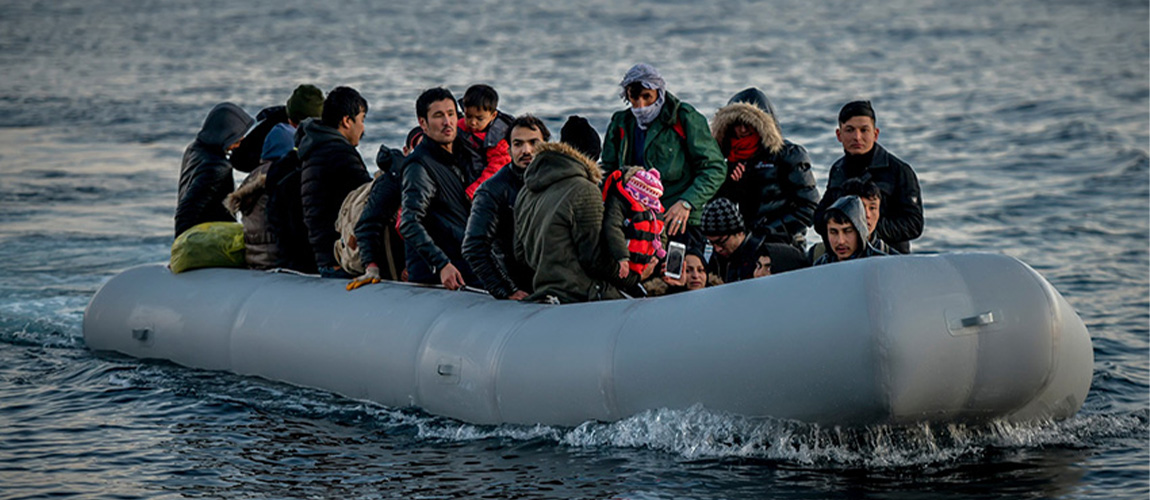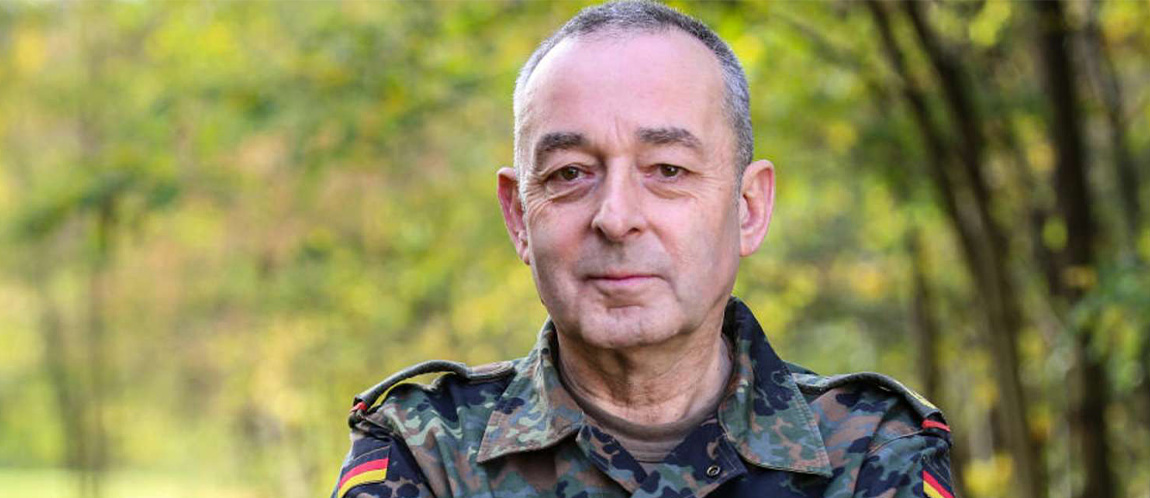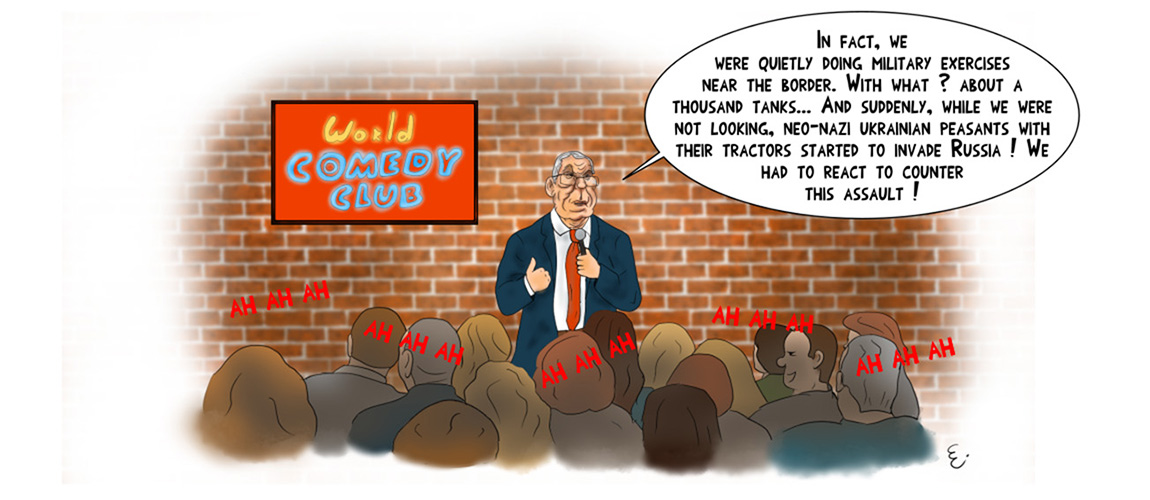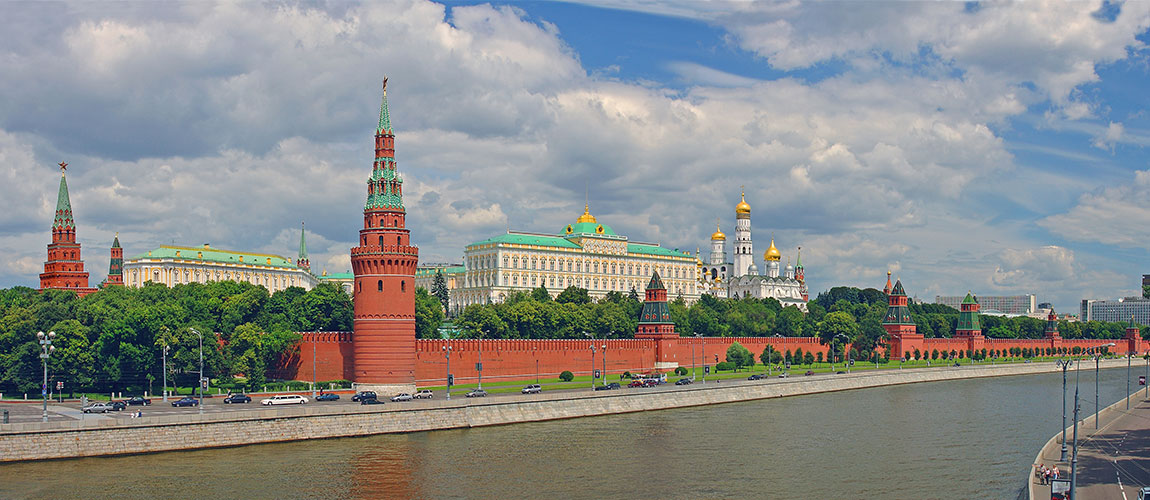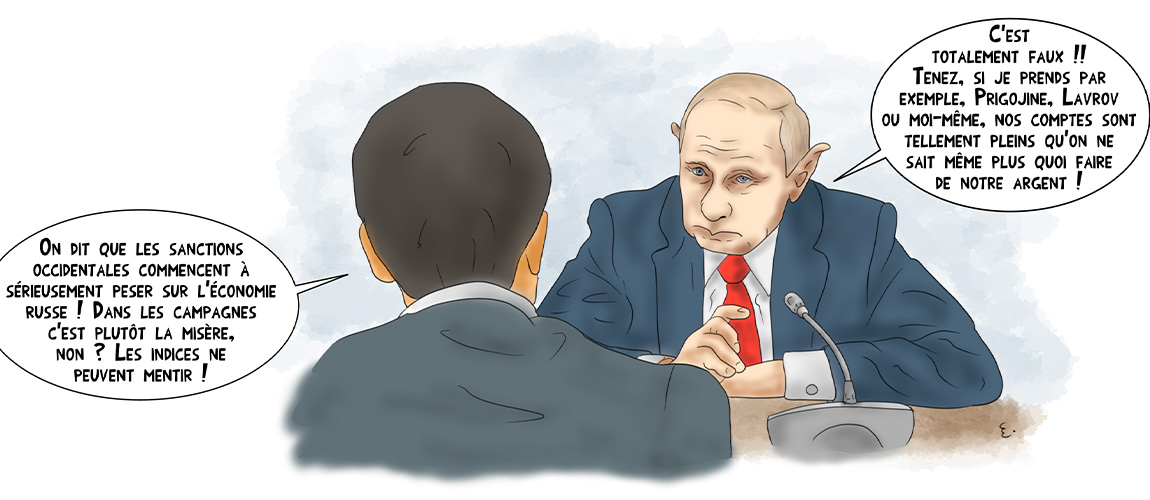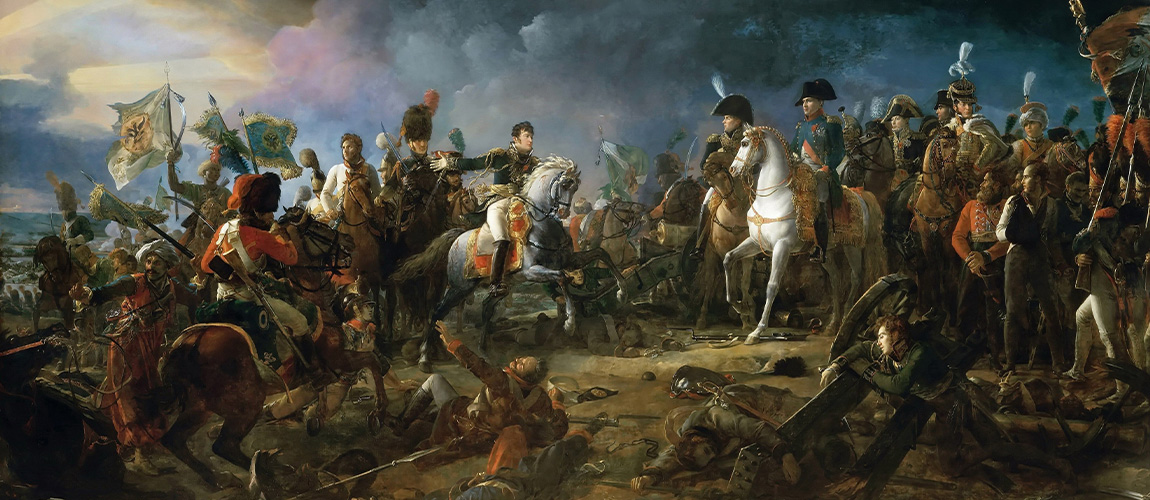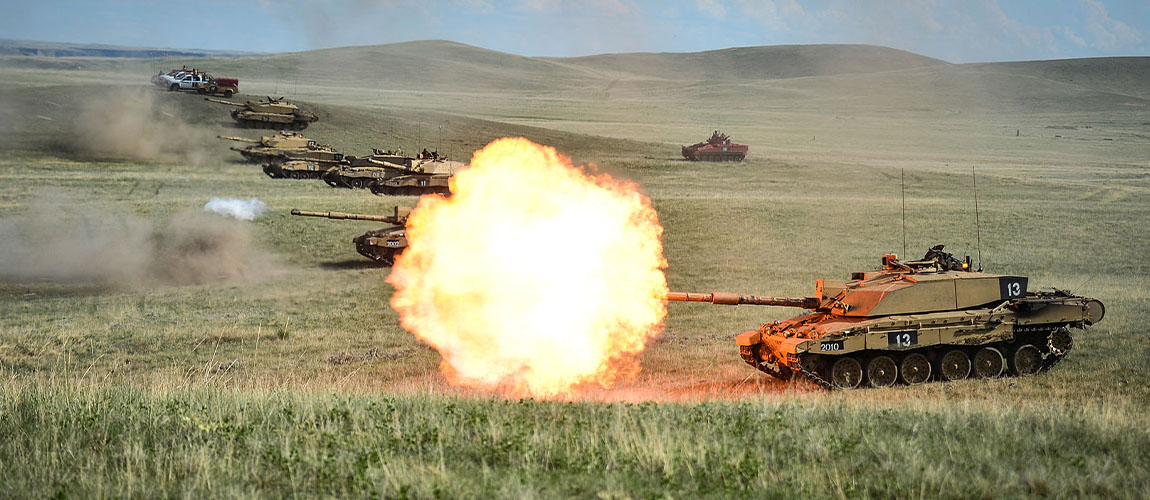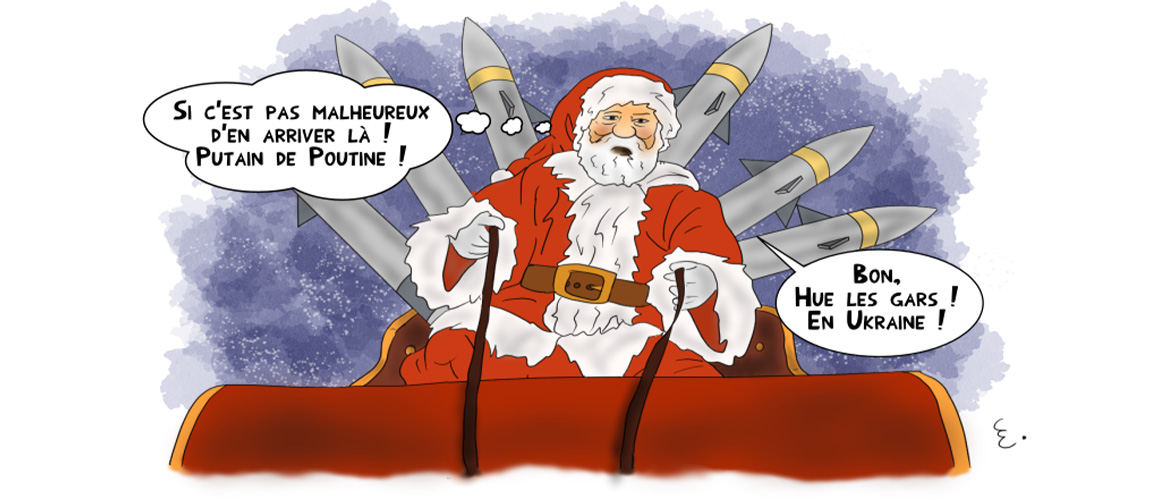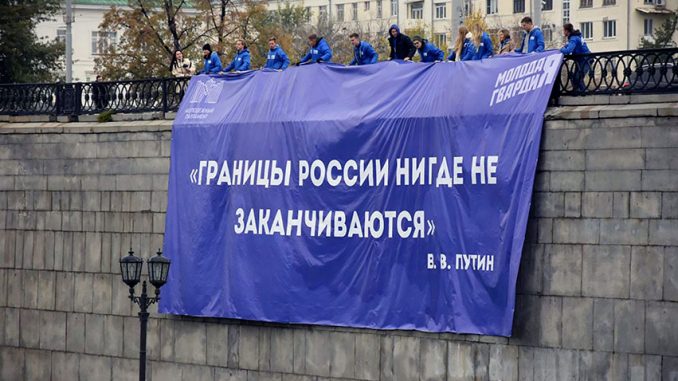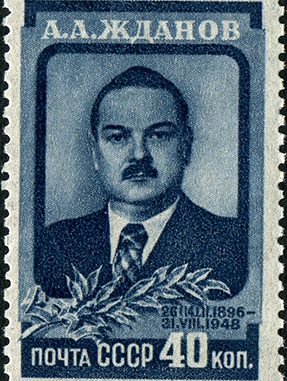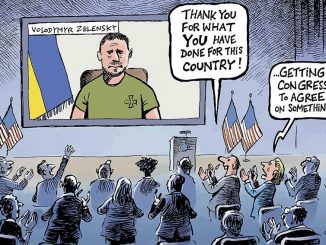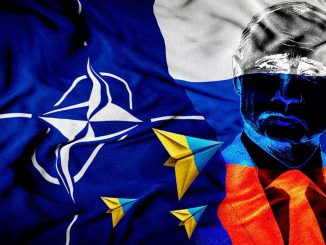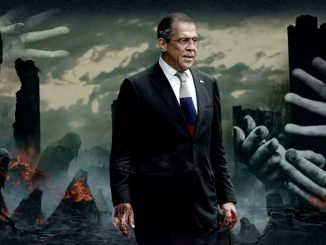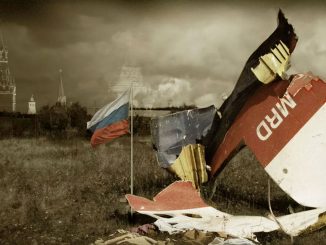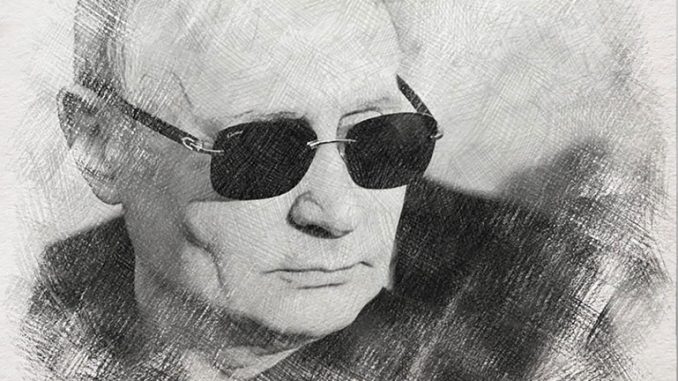
EN LIGNE DE MIRE

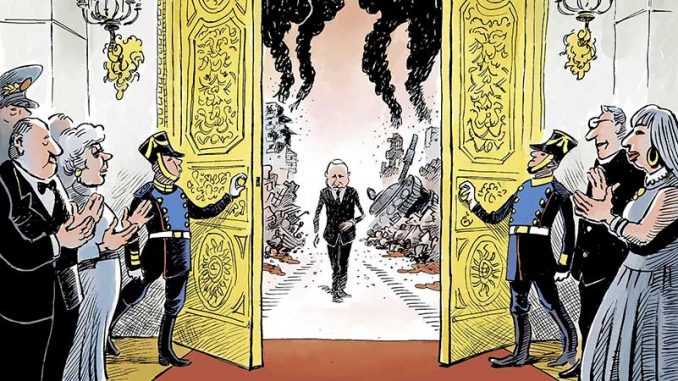
La grande imposture russe
Guerre en Ukraine

Et si Macron avait raison ?
La petite phrase d’Emmanuel Macron suggérant aux Européens de ne pas écarter l’idée de mettre des troupes au sol en Ukraine a fait couler beaucoup d’encre et n’a laissé aucun pays allié indifférent. Il n’a pas fallu longtemps pour constater que cette unanimité dans la condamnation se transforme en un soutien discret, de quoi irriter Vladimir Poutine… Il aura suffi d’une semaine pour constater qu’il n’y avait pas que les Baltes, les Tchèques ou les Polonais, pour penser que la gravité de la menace d’une défaite de l’Ukraine méritait bien que l’on se pose sérieusement certaines questions. Dans les pays du Nord égale-ment, l’idée a rapidement trouvé une résonnance comme cela a été le cas aux Pays-Bas. La publication ce jour d’une analyse de Britta Sandberg dans le Spiegel, le plus grand des magazines allemands, a été accueillie avec un soulagement et une surprise mal dissimulés. Nous reproduisons ici cet article avec l’autorisation de son auteure. […]

« Les États européens ont les moyens de résister à la pression russe »
il est inéluctable que la situation s’aggrave dange-reusement aux frontières de l’Union européenne et de l’OTAN… Si Poutine pouvait l’emporter sans guerre frontale, en visant les lignes de moindre résistance de l’Occident et en s’appuyant sur les forces internes de dislocation qu’il contrôle, il ne s’en priverait pas. Rappelons que ce n’est pas l’envahisseur d’un pays qui déclenche la guerre, mais la résistance armée du pays visé par l’agression. Dans De la guerre, Clausewitz mentionnait cette vérité, ce qui avait beaucoup amusé Marx et Engels (ils ont annoté l’exemplaire consulté). En d’autres termes, si vous voulez éviter la guerre, la chose est simple : « Soumettez-vous ». Cette petite musique s’entend déjà derrière les appels à la « désescalade ». Mais qui donc pratique l’escalade sinon Poutine et les hommes qui dirigent la Russie-Eurasie ? […]

Ukraine : rupture ou continuité ?
Un fort sentiment d’inquiétude commence à se manifester face à la guerre d’Ukraine parmi les dirigeants français et européens, mais également au niveau de l’opinion publique. Ce sentiment est sans doute à l’origine du quasi retournement des positions affi-chées par le président de la République en France…
Nous appelions, il y a quelques mois déjà, à la définition d’une stratégie des pays occidentaux face à la Russie, complète et unifiée, qui irait au-delà du simple objectif de l’empêcher de gagner, pour s’accorder sur des objectifs positifs, collectivement approuvés, dont le but serait de briser l’agres-sion russe, sur le plan des moyens, mais également, et plus fondamentalement, sur celui de la volonté d’agression, objectif plus difficile à atteindre, mais sans lequel l’arrêt de l’action militaire ne peut être qu’un état provisoire, donc précaire. […]
LES DERNIÈRES CHRONIQUES

Seeking Rifts and Launching Missiles
The Kremlin knows even its most brutal tactics will not work against Ukraine if EU and NATO support continues. It continues trying to undermine the unity of these organisations and drive a wedge between them and Ukraine. The Kremlin also knows that even its most vicious intimidation tactics, like launching a cruise missile against a children’s hospital, will not break Ukrainian resistance as long as EU and NATO support continues. For that reason, a core goal of disinformation campaigns is to exploit any real or imaginary crack in the unity of EU and NATO members to weaken these organisations… A cynic might think the bombings on 8 July could have had something to do with the NATO summit on 9-11 July, perhaps to send some kind of sick message. […]
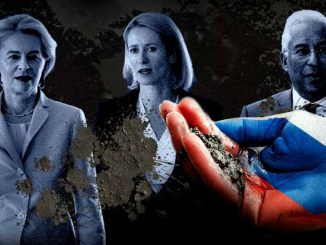
Tainting the New Dawn
The pro-Kremlin disinformation ecosystem kicked into a higher gear to smear the newly appointed EU leadership, particularly honing in on HRVP-to-be Kaja Kallas. Meanwhile, others spun the French snap elections into doomsday stories about the EU and, of course, blamed Ukraine for it all. Last week, quite a few pivotal moments took place in the European political landscape. The European Council nominated a new EU political leadership for the next five years while France held a heated first round of snap parliamentary elections. None of these events went unnoticed by the pro-Kremlin disinformation ecosystem. It readily kicked into a higher gear to smear the new EU political leadership, peddle disinformation, and refurbish old conspiracy theories. […]

The Kremlin Mobilises the Church for War… for Africa
The Kremlin uses the Russian Orthodox Church to spread disinformation, weaponize historical memory and conjure the perception of protecting ‘traditional values’ across Africa. In its confrontation with the West, Russia seeks allies among the countries of the Global South, particularly in Africa. Recently, the Russian Orthodox Church (ROC) has become involved in this effort. On 29 December 2021, the ROC decided to establish its own exarchate in Africa, encompas-sing all African countries. Its activity is already noticeable in almost 30 African countries and its declared ambitions are to expand its influence throughout the whole continent. By Dr. Olena Snigyr, chief consultant in the Research Center for Russian Federation Problems at the Ukrainian National Institute for Strategic Studies (NISS) […]

“Disinformation is one problem among many in the information environment”
Expert Alicia Wanless explains the terms “information environment” and “information ecology” and how these concepts can inform a whole of society approach to strategically foster democracy. « The information environment is the space where people process information to make sense of the world. To do this, humans develop tools from alphabets to artificial intelligence to transform information into artefacts that can be shared from the spoken word to videos, and whatever comes along in the future. The information environment consists of people, the means for processing information, the outputs created with those means, as well as the interrelation-ships between these three things, which are all shaped by conditions.» […]







